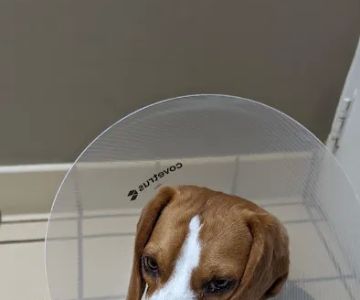Benefits of Probiotics in Pet Food
As a pet owner, one of the most important things I’ve learned is how essential it is to provide the right nutrition for my furry friend. When I first heard about the benefits of probiotics in pet food, I was curious but skeptical. Would adding probiotics to my dog's food really make a difference? After some research and trying it out, I realized just how much probiotics can improve my pet's health. In this article, I’ll share my experience and explain why probiotics are so beneficial for pets.
1. What Are Probiotics and Why Are They Important?
Probiotics are live bacteria and yeasts that are good for your pet's digestive system. You might think of bacteria as something bad, but there are good bacteria that help maintain the balance of microorganisms in your pet's gut. Just like in humans, pets also need probiotics to support their gut health. I learned that probiotics play a crucial role in promoting healthy digestion, which is especially important for pets with sensitive stomachs.
1.1 Probiotics in Pet Food
When I started looking into probiotics for my dog, I found that many high-quality pet foods are now incorporating probiotics into their formulas. These pet foods are specifically designed to improve digestion and boost the immune system. Since probiotics help break down food and absorb nutrients more effectively, my dog’s digestive health improved noticeably. After switching to a food with probiotics, I noticed that his digestion was smoother, and he seemed to be more energetic.
2. The Key Benefits of Probiotics for Pets
There are several key benefits to adding probiotics to your pet’s diet. From improved digestion to enhanced immunity, probiotics can help your pet live a longer, healthier life. Here are some of the key benefits that I’ve experienced with my own pets:
2.1 Improved Digestion
One of the most noticeable changes I saw after adding probiotics to my dog’s diet was his digestion. Probiotics help regulate bowel movements and can alleviate issues like diarrhea, constipation, and bloating. I remember when my dog had frequent digestive issues, but after incorporating probiotics, his stool became more regular, and his stomach seemed less upset. It’s a relief to know that probiotics can help maintain a healthy gut flora for better digestion.
2.2 Strengthened Immune System
Probiotics also play a significant role in strengthening your pet's immune system. About 70% of a pet's immune system is housed in the gut, so having healthy gut flora is crucial. When my dog started taking food with probiotics, I noticed that he had fewer digestive upsets and seemed less prone to infections. Probiotics are known to stimulate the production of antibodies, which protect your pet from harmful pathogens.
2.3 Allergy Relief
Interestingly, probiotics can also help with allergic reactions in pets. My dog used to suffer from seasonal allergies, and after adding probiotics to his food, I observed that his allergy symptoms seemed less severe. Probiotics help regulate the immune system, reducing the overreaction to allergens. While they didn’t completely eliminate the allergies, they certainly seemed to help manage the symptoms better.
3. Probiotics for Specific Health Conditions in Pets
Probiotics aren’t just beneficial for pets in general—they can also be helpful for specific health conditions. If your pet suffers from any of the following, probiotics can make a real difference:
3.1 Gastrointestinal Problems
If your pet has a sensitive stomach or gastrointestinal problems, probiotics are particularly beneficial. After my dog underwent surgery, his digestive system became sensitive, and he had trouble eating normal food. His vet recommended a probiotic supplement, and it made a huge difference. Probiotics helped restore the balance of his gut bacteria, and he was able to digest food much more comfortably.
3.2 Antibiotic-Related Diarrhea
Sometimes, when pets take antibiotics, they can develop diarrhea as a side effect. Probiotics help replenish the good bacteria in the gut, which antibiotics often deplete. My dog was prescribed antibiotics after a minor illness, and the vet recommended giving him probiotic-infused food to prevent any digestive issues. It worked wonders—he didn’t experience any digestive problems during his recovery.
3.3 Skin and Coat Health
Probiotics can also contribute to healthier skin and coats for pets. By improving gut health, probiotics help with nutrient absorption, leading to better overall health, including a shinier coat. I noticed that after my dog started consuming probiotics regularly, his coat looked healthier, shinier, and softer. This benefit was an added bonus that I wasn’t expecting!
4. Choosing the Right Probiotic for Your Pet
Choosing the right probiotic for your pet can be overwhelming with all the options available. Here are a few tips to make the process easier:
4.1 Consult Your Vet
Before adding probiotics to your pet’s diet, I recommend consulting your vet. They can help determine if probiotics are necessary for your pet and recommend the best type for their specific needs. For example, my vet suggested a particular probiotic strain that was suitable for my dog's digestive system, and it made a noticeable difference.
4.2 Look for High-Quality Pet Food Brands
When shopping for pet food with probiotics, look for trusted brands that focus on high-quality ingredients. I learned that the best pet foods with probiotics often list specific strains of probiotics on the label, such as Lactobacillus acidophilus or Bifidobacterium. These strains are known to be effective in supporting digestion and immune function.
4.3 Consider Probiotic Supplements
If you're unsure about changing your pet’s food, you can also try probiotic supplements. These are available in various forms, such as powders, capsules, or chewable tablets. I found probiotic supplements to be a convenient way to supplement my dog's diet without switching his entire food regimen.
5. How to Spot a Good Probiotic in Pet Food
Not all pet foods with probiotics are created equal. Here’s what I learned to look for when choosing a good probiotic food for my pet:
5.1 Look for Multiple Strains
It’s best to choose pet food that includes multiple strains of probiotics. This increases the diversity of the gut microbiome, which is crucial for optimal health. I personally prefer pet food that lists at least two or three different strains of probiotics, as this ensures my dog gets a variety of beneficial bacteria.
5.2 Check for Active Cultures
Another important factor is whether the probiotics in the pet food contain active cultures. Active cultures ensure that the probiotics remain alive and effective when your pet consumes them. Always check the product label for information about active cultures to ensure that your pet is receiving the full benefits of probiotics.
5.3 Consider Digestive Support Formulas
Some pet foods are specially formulated with probiotics to support digestive health. These formulas are designed to maintain a balanced digestive system and are a great choice for pets with sensitive stomachs. I’ve found that these formulas work well for pets who have occasional digestive issues.











